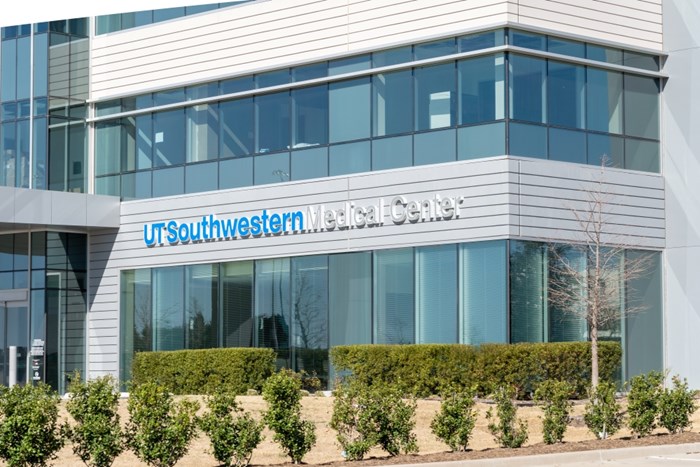Program Peek: University of Texas Southwestern

History
- Established in 1969 by Ted Mills, MD, who appointed Kenneth E. Salyer, MD, to the role Division of Plastic Surgery chief. The first resident to graduate the program was Miguel Vargus, MD, in 1973.
- 1983 – Fritz Barton, Jr., MD, was named division chief. He modeled the construction of the division after his NYU mentor, John Converse, MD, and recruited subspecialized faculty to build the program. He began Selected Readings in Plastic Surgery in 1978.
- 1992 – Rod J. Rohrich, MD, became chair of the Department of Plastic Surgery, one of the first plastic surgery departments in the United States
- 2015 – Jeffrey Kenkel, MD, named department chair
Leadership
- Jeffrey Kenkel, MD, Professor and Chair, Department of Plastic Surgery
- Andrew Zhang, MD, Professor and Vice-Chair of Education, Program Director of Integrated and Independent Plastic Surgery Residencies
- Alex Kane, MD, Professor and Vice-Chair of Academic Affairs
- Shai Rozen, MD, Professor and Vice-Chair of Clinical Research
- Nicholas Haddock, MD, Associate Professor and Vice-Chair of Business Affairs
National Leadership
- Kenkel, Editor-in-Chief, Aesthetic Surgery Journal (as of January 2024), past president, American Society for Aesthetic Plastic Surgery
- William P. Adams Jr., MD, past president, American Society for Aesthetic Plastic Surgery
- Al Aly, MD, Editor-in-Chief, Aesthetic Surgery Journal Open Forum (as of January 2024)
- Bardia Amirlak, MD, Editorial Board, Aesthetic Surgery Journal
- Douglas Sammer, MD, Associate Editor, Journal of Hand Surgery
- Nicholas Haddock, MD, Associate Editor, Plastic and Reconstructive Surgery
- Shai Rosen, MD, Associate Editor, Plastic and Reconstructive Surgery
Clinical Experience
- Core training sites include William P. Clements Jr., University Hospital; Parkland Memorial Hospital; Children's Medical Center – Dallas; Dallas Veterans Affairs Medical Center; Baylor University Medical Center.
- Additional rotations at private practices and community hospitals
- 27 full-time faculty and 30 adjunctive faculty from the Dallas-Fort Worth community
- 30 integrated residents, three independent residents
- Craniofacial fellowship (one Fellow/year); hand surgery fellowship (two Fellows/year), aesthetic surgery fellowship (one Fellow/year), microsurgery fellowship (one Fellow/year)
- Two-and-a-half months of plastic surgery rotations during first year; 10 months during second year; all year from third year to chief year
- Night float rotation during second and third year
- Cosmetic focused rotation during fourth year; up to six weeks of elective time available-fifth year; community rotations during sixth year.
- Resident-run, year-round aesthetic clinic during PGY 5-6
Educational Cirriculum
- Tuesday: Hand Indications Conference
- Wednesday: Pediatric indications conference; microsurgery indications (2nd and 4th Wednesdays); 1-2-3 conference (lectures for junior residents, 1st and 3rd Wednesdays)
- Thursday: hand conference (morning conference); grand rounds (faculty lectures); photo/teaching conference (afternoon)
- Friday: VA and Parkland indications conference
- M&M once per month
- Journal Club meetings at local restaurants covering major subspecialties of plastic surgery
- Formal case-based knowledge assessment exam twice a year
- Anatomy labs five to six time per year from head to toe
- LASER course twice per year
- Injection clinic quarterly
- Visiting professors
- Professional development lectures series twice per year (focusing on how to build a successful practice, contracts and coding, etc.)
- Professional leadership training with multiple helpful assessments and six lecture/small group training sessions (every three years)
- Formal mentorship group paring with regularly scheduled meetings and outings
Research
- Numerous, highly productive faculty research projects with governmental, societal and industry support
- More than 100 departmental publications annually; more than 50 percent with resident co-authors
- Department support for access to statistician
- Annual research retreat
Resident Benefits
- Department pays to cover resident salary and benefit for off-site rotations.
- Built-in time for elective rotations (international possible)
- Up to $2,000 annual travel stipend (PGY 4-6) for domestic meetings of their choice
- Additional up to $2,000 travel stipend (PGY 1-6) for podium presentations at domestic meetings
- Department support of ASPS membership
- MedOne access for vast number of eBooks and journals
- Mileage reimbursement for off-site rotations
- 25 days of PTO
- Night float service during the week eliminates overnight call and allows residents to rest and prepare for cases
- $125 meal money for Parkland Hospital rotations
- Prize for best plastic surgery In-Service performance
- Bridge Harrison Humanitarian Award to support international missionary trips
Resident Camaraderie
- Annual pool party at the program director's house celebrating the end of the year and welcome incoming residents to the program
- Annual themed holiday party hosted by the department chair
- Team-building events throughout the year with residents and faculty; beach volleyball, bowling, cooking just to name a few
- Annual Thanksgiving work-out day hosted by a program faculty
- Women in Plastic Surgery (WPS) dinners
- Annual Alumni Day event featuring early-, mid- and late-career alumni sharing their life and practice experiences; during Alumni Day, graduating residents put their own best case during residency up for the coveted "Mr. Chips" award
- Resident-led informal gatherings happen organically on a weekly basis